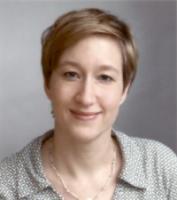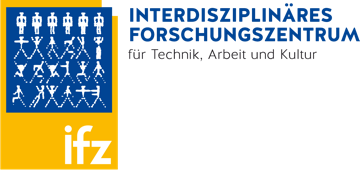Saenger, Eva | Germany

Eva Sänger is a sociologist and received her Ph.D. from Goethe University Frankfurt and her M.A. from Justus Liebig University in Gießen. She has been a junior faculty member at Goethe University Frankfurt, where she taught several courses in gender studies, sociology of knowledge and sociology of the body and feminist technoscience studies. She has been awarded a postdoctoral fellowship by the Bielefeld Graduate School of History and Sociology at the University of Bielefeld and has been a visiting fellow at the center of science and technology studies at the University of Copenhagen in June 2012. Currently she is writing her habilitation thesis on prenatal parenthood and ultrasound screening in maternity care at the Faculty of Social Sciences at Goethe-University Frankfurt, where she is a member of the Research Platform “Biotechnology, Nature and Society”.
Her current fields of specialization include: theories of practice and the body, gender, reproduction and biopolitics, ethnography, feminist technoscience studies, changing forms of parenthood in late modern societies as well as changes in the health care system, especially in the field of maternity care in Germany. She is currently researching the influences of ultrasound technology based medical health care on parents-to-be in Germany.
Project at IAS-STS: Obstetrical care as a matter of time: Ultrasound screening in anticipatory regimes of pregnancy
In my lecture I explore the ways in which ultrasound screening influences the temporal dimensions of prevention in the obstetrical management of pregnancy. Drawing on praxeographic perspectives and empirically based on participant observation of ultrasound examinations in obstetricians’ offices, I ask how ultrasound scanning facilitates anticipatory modes of pregnancy management, and investigate the entanglement of different notions of time and temporality in the highly risk-oriented modes of prenatal care in Germany. Arguing that the paradoxical temporality of prevention – acting now in the name of the future – is intensified by ultrasound screening, I show how the attribution of risk regarding foetal growth in prenatal check-ups is based on the fragmentation of procreative time and ask how time standards come into play, how pregnancy is located in calendrical time, and how notions of foetal time and the everyday life times of pregnant women clash during negotiations between obstetricians and pregnant women about the determination of the due date. By analysing temporality as a practical accomplishment via technological devices such as ultrasound, I contribute to debates in feminist STS studies on the role of time in reproduction technologies and the management of pregnancy and birth in contemporary societies.
Selected Publications
Sänger, Eva: „Obstetrical care as a matter of time: ultrasound screening, temporality and prevention”, in: History and Philosophy of the Life Sciences; Special Issue: Temporalities of Reproduction. Practices and Concepts 1750-2103. (forthcoming), Vol. 37, 1, 2015
Sänger, Eva: „Mutters Blut, Kindes Schicksal“. Die Einführung des PraenaTest in den Medien. In: GID. Gen-ethischer Informationsdienst, 224, Juni 2014, S. 15-17
Sänger, Eva; Dörr; Annalena; Scheunemann, Judith; Treusch, Pat: Embodying Schwangerschaft: pränatales Eltern-Werden im Kontext medizinischer Risikodiskurse und Geschlechternormen, in: Gender. Zeitschrift für Geschlecht, Kultur und Gesellschaft, Schwerpunktheft Medikalisierung und Geschlecht zwischen Optimierung, Pathologisierung und Gesundheitsförderung, Jg. 5, Nr. 1 (2013), S. 56-71.
Sänger, Eva; Rödel, Malaika: Biopolitik und Geschlecht. Zur Reg(ul)ierung des Lebendigen – eine Einleitung, in: Sänger, Eva; Rödel, Malaika (Hg.): Biopolitik und Geschlecht. Zur Regulierung des Lebendigen. Verlag Westfälisches Dampfboot, Münster 2012, S. 7-25
Sänger, Eva: „Einfach so mal schauen, was gerade los ist“. Biosoziale Familialisierung in der Schwangerschaft, in: Liebsch, Katharina; Manz, Ulrike (Hg): Leben mit den Lebenswissenschaften. Wie wird biomedizinisches Wissen in Alltagspraxis übersetzt? Transcript Verlag, Bielefeld 2010, S. 43-61.
Although I spent only four weeks in Graz my stay was very productive and enriching. I met a lot of interesting researchers working in STS with which I could share and discuss my ideas. The staff was very welcoming too. I also valued the time I had for writing and thinking in the well quipped and sunny workspace – with kitchen and sofa! The office has a lovely view and is in the center of Graz. Graz is a beautiful city. It is a lively town and there are a lot of interesting cultural events. You are very close to nature and can do great tours in the mountains. All in all I can recommend a stay at the IAS-STS very much and hope to come back to Graz at one time.
Fellow at IAS-STS: 2014/2015
